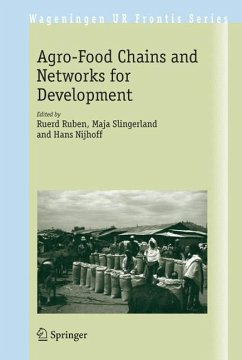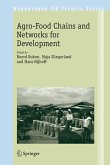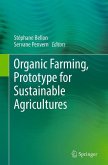Agro-food chains and networks play an increasingly important role in providing access to markets for producers from developing countries. In developing countries companies become integrated into geographically dispersed supply networks that link producers, traders and processors from the South with retailers and consumers in urban centres and in the North. Globalization of trade and integration of supply chains lead to new demands regarding food quality, safety and health.
Companies involved in global food and agri-business chains and networks face fast changes in their market and business environment. New procedures and practices for organizing food supply networks - based on co-innovation between primary producers, processors and retailers - are emerging to cope with food grades and standards. Optimizing chain performance asks for cooperation between all agents involved in the supply chain. Agro-food companies communicate consumers' demands to smallholders to guarantee stable market access. Public and voluntary agencies may provide important contributions for reinforcing the supply-chain environment.
This volume combines insights from theory with a large number of business cases to enable a better understanding of the opportunities and constraints that supply-chain integration can offer for stimulating rural development.
Companies involved in global food and agri-business chains and networks face fast changes in their market and business environment. New procedures and practices for organizing food supply networks - based on co-innovation between primary producers, processors and retailers - are emerging to cope with food grades and standards. Optimizing chain performance asks for cooperation between all agents involved in the supply chain. Agro-food companies communicate consumers' demands to smallholders to guarantee stable market access. Public and voluntary agencies may provide important contributions for reinforcing the supply-chain environment.
This volume combines insights from theory with a large number of business cases to enable a better understanding of the opportunities and constraints that supply-chain integration can offer for stimulating rural development.








